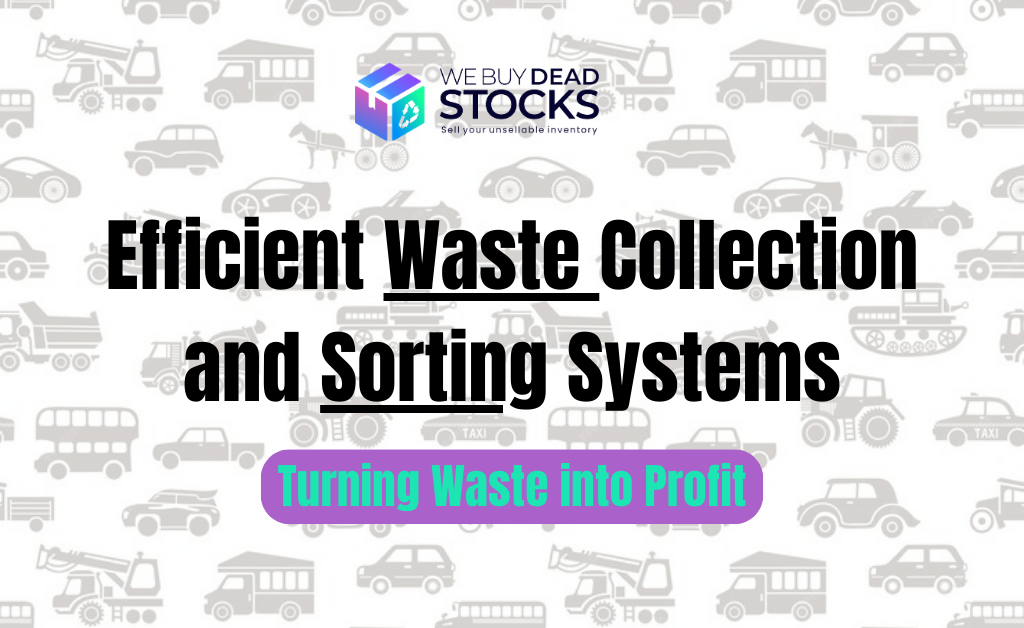Welcome to our blog where we delve into the innovative world of turning trash into cash. In today’s environmentally conscious society, businesses are constantly seeking sustainable solutions to not only reduce waste but also to generate revenue. The concept of transforming waste materials into valuable commodities by efficient waste collection and sorting systems has gained significant traction, paving the way for a new breed of entrepreneurs embracing the “trash-to-cash” business model. In this article, we’ll explore the intricacies of this burgeoning industry, uncovering the strategies and technologies behind the profitable conversion of waste into assets.
Understanding the Trash-to-Cash Business Model
In today’s dynamic business landscape, the trash-to-cash business model has emerged as a transformative approach with significant economic implications. At its core, this model revolves around the conversion of waste materials into profitable resources, fueling both environmental sustainability and financial gain.
- The trash-to-cash business model is predicated on the notion of extracting value from discarded materials, thereby reducing waste and generating revenue simultaneously. By implementing efficient waste collection and sorting systems, businesses can identify and salvage reusable materials, ranging from plastics and paper to metals and electronics.
- Central to the functioning of this model is the process of turning waste into valuable resources through innovative recycling and upcycling techniques. Through strategic partnerships and cutting-edge technologies, businesses can streamline the extraction, processing, and repurposing of discarded materials, maximising their potential for profitability.
- Across various industries, we witness successful businesses harnessing the power of the trash-to-cash model to drive sustainable growth and profitability. From companies specialising in metal recycling to those focused on repurposing electronic waste, these examples underscore the versatility and effectiveness of this innovative approach.
By delving into the intricacies of the trash-to-cash business model, we gain insight into its transformative potential and its ability to redefine traditional notions of waste management.
The Benefits of Adopting a Trash-to-Cash Approach
In today’s increasingly eco-conscious society, the concept of turning trash into cash is gaining momentum, and for good reason. Let’s delve deeper into the myriad benefits of embracing this approach:
Environmental Benefits:
- By diverting waste from landfills through efficient waste collection and sorting systems, we’re significantly reducing the environmental burden associated with traditional waste disposal methods. Landfills emit harmful greenhouse gases and leach toxins into the soil and water, posing serious threats to both human health and the ecosystem.
Economic Benefits:
- The economic implications of adopting a trash-to-cash approach are profound. By monetizing materials that would otherwise be discarded, individuals, businesses, and communities stand to generate significant economic implications. This not only offsets the costs associated with waste management but also creates new opportunities for entrepreneurship and innovation.
- Metal recycling, for instance, offers a prime example of how converting scrap metal into valuable commodities can yield substantial returns. From aluminium cans to steel scrap, recycling metals not only conserves energy and reduces greenhouse gas emissions but also provides a lucrative revenue stream for recyclers and manufacturers alike.
Social Benefits:
- Beyond the environmental and economic gains, a trash-to-cash approach has profound social implications. By repurposing waste materials and investing in recycling infrastructure, we’re not only creating jobs but also fostering community development and empowerment.
- Recycling centres and waste management facilities serve as hubs of economic activity, providing employment opportunities for individuals of diverse skill sets and backgrounds. From waste collectors to recycling technicians, these jobs not only offer stable incomes but also promote skill development, training, and upward mobility within local communities.
Key Strategies for Implementing a Trash-to-Cash Business Model
Conducting Comprehensive Waste Audits:
- Start by assessing the types and volumes of waste generated within your target market.
- Identify high-value materials such as metals, plastics, paper, and electronics that can be recycled profitably.
Analyzing Market Demand:
- Research market trends and demand for recycled materials.
- Focus on waste streams with strong market demand and favourable pricing dynamics.
Developing Partnerships
Establishing Relationships with Recycling Facilities:
- Collaborate with local recycling centres to establish partnerships for waste collection and processing.
- Negotiate favourable terms for material sourcing and revenue-sharing agreements.
Forging Alliances with Manufacturers:
- Identify manufacturers that use recycled materials in their production processes.
- Form strategic partnerships to supply high-quality recycled materials and meet their sourcing needs.
Investing in Technology and Innovation
Implementing Advanced Sorting Technologies:
- Invest in state-of-the-art sorting equipment such as optical scanners and magnetic separators.
- Automate the segregation process to improve efficiency and accuracy.
Exploring Innovative Recycling Techniques:
- Research innovative recycling technologies such as chemical recycling and material recovery facilities.
- Evaluate the feasibility of adopting these techniques to increase material recovery rates and enhance profitability.
Marketing and Branding Strategies
Communicating Environmental Benefits:
- Highlight the environmental benefits of recycling and waste diversion.
- Emphasize the role of your business in reducing landfill waste and promoting sustainability.
Showcasing Economic Implications:
- Illustrate the significant economic implications of your trash-to-cash business model.
- Showcase the revenue-generating potential and cost-saving benefits of recycling.
Engaging with Customers and Investors:
- Develop targeted marketing campaigns to attract customers and investors.
- Utilize digital marketing channels and social media platforms to raise awareness and build brand visibility.
By implementing these key strategies, you can establish a profitable trash-to-cash business model that not only generates revenue but also contributes to environmental sustainability and community development. Through effective waste management practices, strategic partnerships, technological innovation, and compelling marketing efforts, you can unlock the full potential of recycling and waste-to-resource conversion.
Conclusion:
In conclusion, the trash-to-cash business model represents a compelling paradigm shift in waste management, offering a win-win solution for businesses, communities, and the environment alike. As we’ve explored throughout this article, this innovative approach holds immense potential for driving economic prosperity, environmental stewardship, and social empowerment.
Moreover, the adoption of a trash-to-cash business model not only generates revenue and creates jobs but also fosters a culture of sustainability and resourcefulness within our communities. By diverting waste from landfills, reducing pollution, and conserving natural resources, businesses can play a pivotal role in building a more resilient and equitable society for future generations.
As we continue to navigate the challenges of a rapidly changing world, let us embrace the transformative potential of the trash-to-cash business model and work together towards a more sustainable future. By reimagining waste as a valuable resource and embracing innovative solutions, we can pave the way for a cleaner, greener, and more prosperous tomorrow.





